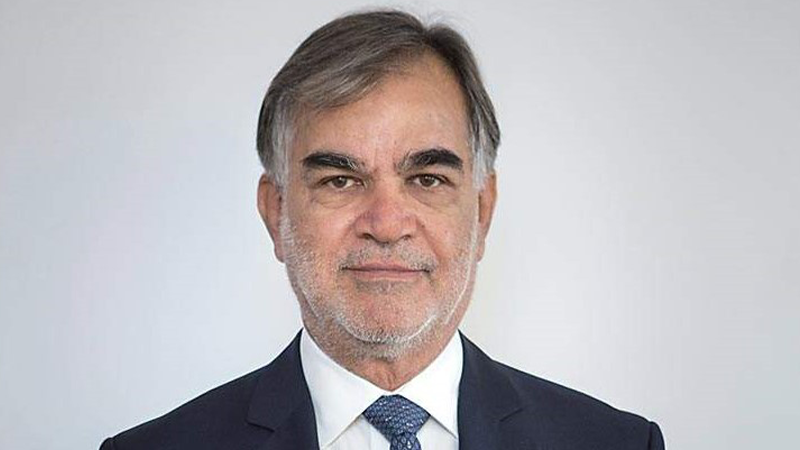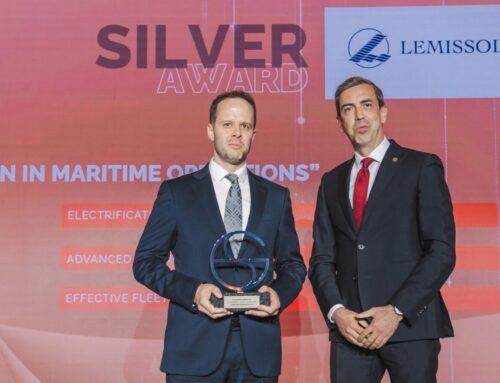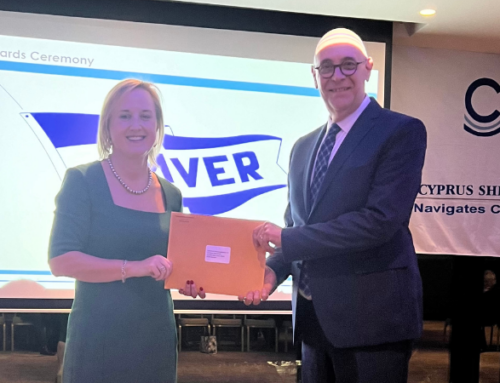Philippos Phillis, president of the board of directors of the European Community Shipowners’ Associations (ECSA), is a strong believer that in a regulatory environment without enough clarity, cooperation between the operators and the shipowners is one of the most important links necessary to drive forward the decarbonisation of the maritime industry.
Speaking at this year’s Capital Link Greek Shipping Forum, the Cypriot shipowner and immediate past president of the Cyprus Shipping Chamber (CSC), highlighted four pillars of shipping decarbonisation: a technical pillar, a commercial one, a regulatory one, and what is called the fourth combustion revolution (alternative green fuels).
The founder and CEO of Lemissoler Navigation believes shipping entered the transitional period 15 years ago, with every ship delivered after 2013 already technically advanced and contributing to the actual reduction of the emissions of about 20% to 30%. As a mechanical engineer from RWTH Aachen, and a Harvard Business School (HBS) graduate, his Lemissoler is also active in research and development, with a focus on enhancing ship efficiency and decreasing carbon footprint.
For Phillis, close collaboration between owners and operators is now required to determine speed, consumption, and other factors, but he also stressed that coordination with ports and direct communication with ships need immediate improvement.
“I think cooperation is a must and it’s something that will create a platform where commercially we can manage to gradually reduce the emissions. It is of course important to say that a missing part, and maybe something IMO should regulate, is the coordination between the ports and the direct communication with the ships to achieve the just-in-time arrival,” he asserted.
Phillis raised questions and doubts about several new regulations being discussed or coming into force shortly, including the implementation of the EEXI, and CII criteria, and whether they would actually reduce carbon intensity. He emphasized that from ECSA’s perspective, the upcoming regulations should be followed but also noted that they need to be “technology-neutral”.
“The aim of ECSA is to create or to at least have these regulations implemented without impacting on the competitiveness of European shipping first and to maintain the level playing field, which is very important,” he stressed.
When it comes to future fuels, Phillis reckons what is now very important is the lifetime cycle analysis for alternative fuels. “We need to calculate all these alternative fuels from well to wake and this is the reason we need green alternative fuels. If they are black, it’s like you charge the battery car from the electricity coming out of fossil fuels. It’s exactly the same effect, so it’s something that is very important for the IMO,” he said at the conference.
Phillis raised doubts about biofuels without changing the engine. “I’m an engineer. I know that if you ask the main engine manufacturers they’ll say yes, but, and I think this might be a trap for the shipowners, therefore we have to look at it a little closer.”
He points out that in order to incentivise shipowners to move to cleaner fuels, which are multiple priced, the industry needs somebody to bridge the price gap difference and maybe the instrument with the carbon contracts for difference. He also pointed to fuel suppliers, saying that there should be some kind of shared responsibility. “You cannot leave them out because they are the ones supplying the fuel. They have to issue their necessary certificates and be responsible for what they are doing,” he told the conference.






